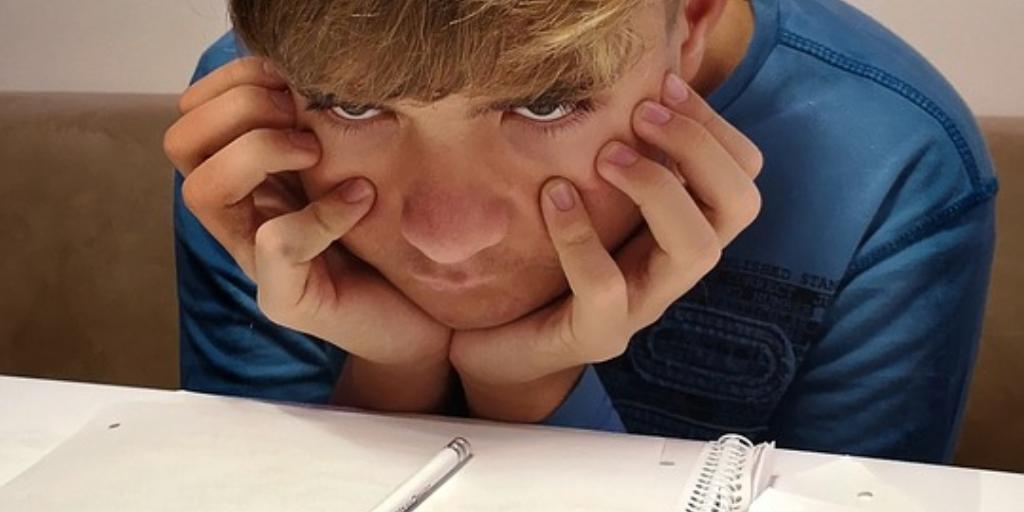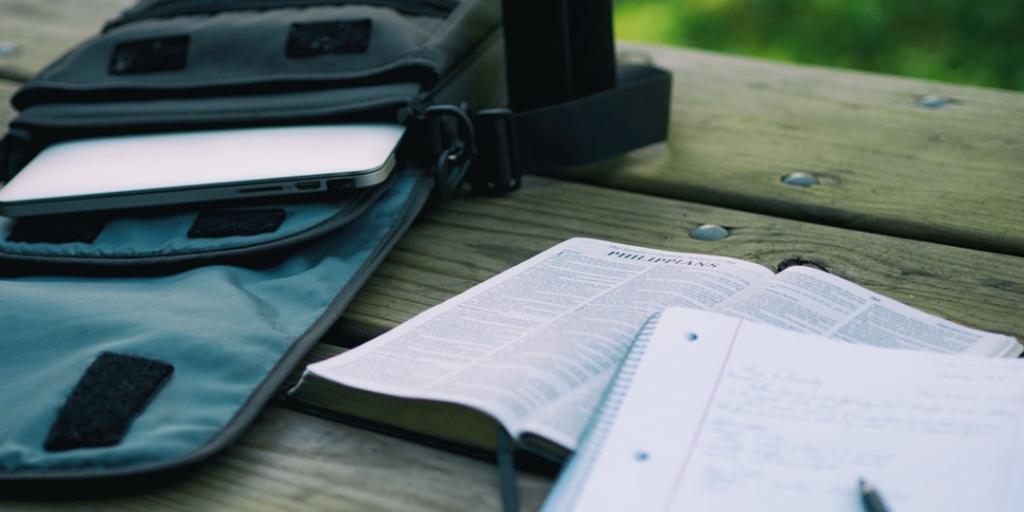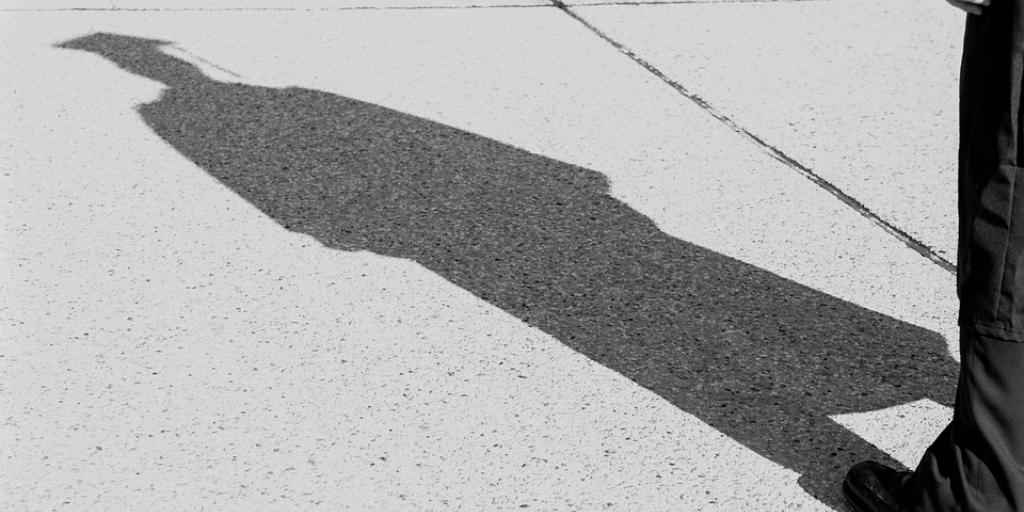In another life, the windowless structure had been a drug store, but in 2005, it reopened as a charter school for high-risk students; though it still looked like a drug store with its surveillance cameras and metal detectors. There was no cafeteria, only a microwave and two vending machines — one for sodas, one for snacks. The front parking lot was newly painted with crisp yellow lines, but not the gravel back lot where the staff parked. The students smoked their menthols at the city bus stop, just off school property. No buses stopped here. The nearest stop was over a mile away in either direction.
The transit department had them rerouted to bypass this part of Cleveland after the two shootings: a block over, man took his own life after gunning down two police officers and the drive-by killing of one of our students. Even though there was a candlelight vigil for the black boy, his passing didn’t garner a lot of press.
The school was called The Life Skills Center for Learning, but someone spray-painted over the first “S.”
I didn’t want to be an English teacher. As embarrassing as it is to admit, I wanted to be a writer. Writer ? The word still feels presumptuous, but still I pursued it because my teachers believed that I had an aptitude. They encouraged me to send out my short stories to a multitude of graduate schools and prestigious literary magazines. Rejections are humbling. They’re debilitating.
The best I got was a handwritten response from The Paris Review : “Enjoyed your story but can’t publish it. Best of luck.” They mailed the handwritten message on a napkin. Sadly, it many ways that was the pinnacle of my writing career.
I applied to copy-writing jobs but was turned down for lack of experience. I applied for journalism jobs, and again, turned down, so with few options, I applied to be a substitute teacher. During the interview, the school’s vice-principal asked, “How do you feel about being a full-time teacher?”
Each classroom consisted of thirty students with three teachers and two teaching assistants, who spoke Spanish because a third of the population were ESL learners. The school opened at 7:30 am and closed at 7:00 pm. Each class ran for three hours; 8:00 am to noon on Saturdays.

All students had to be accompanied by a staff member when using a restroom, so every thirty minutes a male and female adult made restroom runs. I stood guard inside while the guys pissed. It was how the school safeguarded for fights, smoking, drugs, and sex.
“Mr. Tran?” the student said. “You a faggot?” He was a six-foot-three-inch Puerto Rican with braids and easily weighed over three-hundred pounds.
The boys laughed.
“Just finish up,” I said, looking at my reflection. Compared to the students, I looked like the boy. Some even had beards. They wore white, black, and grey school issued polos. It was the school’s policy to use non-gang affiliated colors.
“You are a faggot,” he said.
“Why does it matter to you?”
“I don’t want no faggot looking at my cock.”
The boys all stared at me, more so than they ever had in my classroom, wondering how this story would play out.
“With that big belly, when was the last time anyone got a good look at your cock?”
The boys erupted into laughter.
A female teaching assistant knocked on the door, asking about the ruckus.
“Chinatown,” he said, walking towards me. “You’re good people.” He extended his hand.
His hand was enormous. “Wash it,” I said. “It’s covered in dick.”

M any of the students, ranging from fifteen to twenty-two years old, couldn’t read at grade level, let alone write. In many cases they were compelled by law to be here. Some had been in juvenile detention centers — a few had been to prison. I wasn’t teaching high school content. In many cases, it was elementary level content. I made it common practice to read everything aloud, because one of my students read at a fourth-grade level. She was married, nineteen, and pregnant with her third baby. She couldn’t write a complete sentence and studied math by making change from a dollar.
Another student had no home to do homework, slept on friends’ couches, and lived out of duffel bags like backpackers trekking across Europe. In the mornings, I locked the restroom door, so she could clean herself up before class.
Another student, sixteen, had no front teeth. He was an expecting father. I called in his mother because he wasn’t completing classwork. She came in and sat by his side the entire day while he worked. She was younger than me. On her way out, she slipped me her phone number in a handshake.
Another student, fifteen, thought she was pregnant. “You should talk to your mother,” I said. She broke into tears. Her mother was having sex with her eighteen-year-old boyfriend, too.
Another student was a stripper. We bumped into each other at a bachelor party held at the club.

It was a month into the semester when a teen in aviators handed me a crumpled yellow note. The doctor’s note asked that he be excused from class early for an appointment regarding a gunshot wound to the leg.
“Fred?”
He nodded.
“I’m Mr. Tran.”
He nodded again.
Before I mentioned the sunglasses, I saw the bruises radiating from behind them. I handed him a student assessment, which consisted of a reading passage, some questions, and a questionnaire about his future.
I pointed him to an open desk.
“I’ll stand,” he said, pointing to his leg.
“This might seem silly to ask,” I whispered, “but how come you came to school? Why not just stay home?”
“Because they know where I live,” he said. His voice was deeper than mine.
Fred used the olive-green wall as a table and read through his aviator shades. The gel in his Puerto Rican hair shone like the chrome finish to a newly waxed 1950s Buick Roadmaster. He was 17. His only contact was his mother. He lived a few blocks from the school. This was his fifth high school. I eyed his thigh. Who shot him?

W eeks later, when I was discussing the difference between metaphors and similes, a large black girl, charged an equally large white girl. The black girl pinned the girl’s head down by the hair and wailed on her. I grabbed the black girl while the other teachers protected the white girl. But she tossed me like a bucking bull. The two girls went at it, ripping each other’s shirts. I gave them ten seconds before trying to separate them again. It was going to happen either way. This way, there was at least adult supervision.
I held open my hand.
The black girl handed me a clump of blonde hair. Another teacher escorted her to the bathroom.
I handed the white girl back her hair.
Later I learned it was over a boy.
It had been months since I last saw Fred. He lasted only a week in school, and when the school called his house number to check in on his attendance, the line had been disconnected. He hadn’t completed any assignments and finished only part of the student assessment.
When asked what he saw himself doing in the future, he wrote “pimping.”
Officer Bruce walked into my classroom. “You’re needed up front, immediately.”
Upon seeing me, the vice-principal muted the call. “She wants to talk to you.”
It was Fred’s mother.
He put her on speaker phone.
“My son has told me about you,” she said. “I need you tell me who called us from the school.”
“I’m sorry, but could you provide me with some context?”
“Someone from the school called me and asked what time Fred would come in. I told them he was already in school. When I asked for a reason, he didn’t answer. I asked him for a name, but he only said a teacher and hung up. Who called me? Where is Fred?”
I conferred with the vice-principal.
“Yes,” I said, “it is the school’s policy to check up on students if they are absent, but according to the vice principal, who is in charge of calling parents, has assured me that he has made no such call to you. The number you supplied the school has been disconnected. He stopped calling two months ago.”
“Where is Fred?”
Again, I conferred with the vice-principal.
“I’m sorry,” I said. “We don’t know.”
She began to cry.
“Your school is shit. You are shit. If anything has happened to my son, it will be on your heads. Especially yours.”
“Ma’am,” I said. “When do you last see Fred?”
“This…this morning.”
“Maybe he’s been skipping school. Do you have an idea who might have called your house?”
She started crying. “They’re trying to finish the job.”
The vice principal slumped into his chair.
“Protect him,” she said. “Protect my boy, you hear me.”
“I’m going to confer with the administration…”
“Swear you will.”
“The school will notify the police. You do the same. Call Fred and leave your house. Do you have a place to stay?”
“Swear it!”
“I swear,” I said.

In the winter, the school sent me, along with a TA, to Fred’s house for an hour. Twice a week we homeschooled him. I dressed in a long parka and tie and wore sunglasses. The aide wore a wool coat, button-up shirt, and dress slacks. We looked like a pair of detectives instead of teachers. I kept my wallet and cell phone inside my breast pocket where I imagined a badge and a gun holster should be. The doorbell didn’t ring. I banged on the door, which was sprinkled with bullet holes.
This was not my Cleveland.
I was raised in the suburbs. My only experiences with firearms were with water pistols or plastic guns connected to my Nintendo. Yellow jackets, footballs, and little boys with their pants down were the only things that whizzed by me. In my neighborhood, fathers wore John Deer hats and mothers called me “oriental.” I lived on a cul-de-sac, played basketball with a mini-ball on an adjustable hoop; I swam in an above ground pool with flat chested girls in one-piece swimming suits; I peddled my friends on the back pegs of my BMX bike; we played “Smear the Queer” until we saw the fireflies blinking; we had sleepovers and feasted on pizza and Mountain Dew while we played Dungeons & Dragons. I was always played an elf.
Fred’s house was dark, because his mother insisted that no one be able to see into the house. A cigarette protruded from her mouth like a snapped tusk. Her skin was a crumpled paper bag. The carpet smelled like dog, even though there was no sign of one. The couches and carpet were cluttered with Sunday coupons. Fred, the aide, and I worked on the sticky kitchen table. Strangely, his white girlfriend was present and not at school.
I handed him a large yellow envelope with a week’s worth of worksheets, readings, questions, and writing prompts. I photocopied the works of Junot Diaz, Stephen Dunn, and Richard Hugo; stories about young Dominican boys and poems about fatherhood and retired vets sounded like a good recipe for building a good Latin man.
There were stacks of unwashed dishes from the night before (maybe even longer) and an opened bag of cheese balls that someone had been eating for breakfast.
“Mr. Tran,” Fred said. “I’m going to be a dad.”
“Congratulations,” I said, looking at his girlfriend. “Now you have someone that depends on you.”
“Yeah? Yeah, I do,” he said, lowering his face closer to the reading packet as if his eyes could slurp up the words.
“We need to keep Fred on track,” his girlfriend said, massaging his shoulders. The sonogram hung on the wall next to a crooked picture of Jesus. She was blonde with black framed glasses and wore a hiked-up Catholic school dress with high, navy blue socks.
“Do you have children, Mr. Tran?” she asked, touching her flat stomach.
At the time, I had two online dating profiles, drank profusely, and lived with my cat.
“No,” I said.

T he truth was I hated reading student essays. They read like bullshit, but still I marked them, and still students never read over my comments. It was like writing for no audience. All they cared about was the grade. “Did I pass?” But it was different with Fred. I admired him. Don’t get me wrong, when I assigned him an academic paper, he wouldn’t do shit, but when it came to a writing prompt about his life, he’d wrote and wrote. At least he was writing, right? And I wanted to help him. I was no father-figure, nor did he see me in such a way, but rather like a young uncle; someone he could talk shit with but not rat him out to his mother. We were both young men of color trying to make something out of ourselves in America — I felt like I owed it to him.
I asked him about being a father; the story surrounding his mother; what it felt like to be shot; had he regretted anything in his young life; his favorite childhood memory. And after each response, he’d ask me a question as well. I enjoyed our discourse.
In many ways, I stopped going to the bars and clubs, choosing to stay home and write him back. What began as a few sentences then turned into pages and pages. I shared small passages, but the words — they were for me, and me alone. I allowed myself to talk about how my father; reminisced about the first girl I tongue-kissed; thought back on the Berea waterfalls, which was the closest thing to heaven. I had never been shot, but I had experienced loss, like the many friends that had passed away. I wrote about the things I loved and lost and regretted. And like I said, some of these things I shared with Fred, but most I kept to myself. There was no plot or theme or characterization or world building or mystery, but just me. There was no manuscript, just a bunch of choppy words trying to help some sad guy make sense of a string of shitty days.
Like I said, sometimes the work came in, sometimes it didn’t, but when it stopped altogether, I called his mother. It hurt me not to read any of his prompts — maybe I should have told him. In a week, the work began coming back in as scheduled, but in a different handwriting. When I asked about the discrepancy, his work began coming in typed, the stories stilted. And then one day he stopped. His mother and girlfriend stopped answering the door or the phone.
It wouldn’t be till spring when I saw him again.

W hen the weather grew warmer, the students wore less. I sent out a memo reminding parents and guardians of the school’s dress code policy. Between the warmer weather and exposed skin, students were doing less work than usual — so was I. There were only two months until graduation and the atmosphere had relaxed. In the meantime, I had helped a student publish memoir, which inspired me to write again. The staff threw baby showers for two teachers. I was dating a bank teller. But still, I found myself smothering fistfights in the classroom.
It was close to the end of the day when Fred strolled back into the building, stopping by to hug and shake hands with the other teachers and students like he was a politician running for office. He had turned eighteen and been living with his girlfriend, now fiancé, raising their daughter, Madison. He had been working full-time.
“I’m ready to knock out this work, Mr. Tran,” he said, bobbing his head as if to psyche himself up for a prize fight.
“You’re no longer on my attendance roster,” I said, still reading the student essays. “The school had called and left a number of messages with your mother. You were removed over a month ago. You must re-enroll. Talk to the principal.”
“I had to get my head on right, you know.”
I continued annotating.
“I live with my girl now,” he said. “She’s good for me.”
“The one doing your work?”
He looked tired, as if he hadn’t slept in weeks. “How’s the baby?”
“Good, good.” He showed me pictures.
“Talk to the principal, Fred.”
“Can you?”
“Your eighteen,” I said. “You’re legally a man. Go take care of business. See what he says.”
“I will,” he said, “but can you come with me. Please.”

I have a confession: whenever Pomp and Circumstance is played, I don’t think of graduation, I think of pro-wrestler “The Macho Man” Randy Savage sashaying to the ring in his big shades and sparkling robe with his valet, the beautiful, Miss Elizabeth, as thousands of rabid fans cheer. I knew the music first as his entrance theme song before I understood it to be a commencement ceremony tradition.
Backstage, several boys lined up waiting on me to tie their ties. In the audience, women wore summer dresses and the men donned colorful ties. One man wore a purple zoot suit; a teenage boy wore a white winter coat that looked like polar bear fur — he didn’t seem to mind that it was June. When the music began, I watched my students march in a procession unto the stage. Parents looked for the children; I watched their shoes: boat shoes, dress shoes, brightly colored high tops, sandals, wedges, five-inch high heels, pedicures, and ankle tattoos. Loved ones videotaped and called out their child’s name. Others held up hand-drawn signs offering up their congratulations. Everything felt like a pro-wrestling event.
The valedictorian’s speech was constructed to be intentionally sentimental: beginning with a short list of personal struggles; elaborating on the challenges of school — again listing struggles; admitting to wanting to give up but with the help of friends, loved ones, and family, they found the resilience to press on; telling an amusing anecdote about how she hated, but later grew to respect a “hard” teacher; transitioning into how it had changed her; gratuitously thanking her teachers and parents for all their love and support; ending with advice to her fellow classmates — which was no longer than the length of a fortune cook message. At the end, the audience stood up in thunderous applause and cried. At the reception, strangers congratulated her, proclaiming it was the best speech ever written. Afterwards, the valedictorian sought me out for a photo. Somewhere in Cleveland, the speech, which I had written, is framed.
Why put the pressure of speech writing on a student? She was better off benefiting from a moment where people showered her with love. Even the President has speech writers.
But amongst the many faces, both on stage or in the audience, Fred was nowhere to be found. After the ceremony, I called him, but no one answered.

In the months leading up to graduation, Phuc was a young man possessed with finishing his degree, coming into school early and leaving late. He came into school groggy with bags under his eyes and drinking coffee, looking no different than the teachers with newborns. He wrote pages and pages in his sloppy handwriting. When he started to lose momentum, I let him slip into the teacher’s lounge for a coffee. There was always a dictionary by his side. He began wearing prescription eye glasses. Once he had forgotten his homework, because he mistakenly took the baby’s changing bag. He participated in group discussions. He gave oral presentations. I even tutored him after school. Phuc was a model student.
And then one day, he stopped showing up.
The rumor was Madison was not his. Truth be told, I wanted to drop by his place and split a bottle of whiskey with him. “This won’t break you,” I’d say. “It hurts, but in time, you’ll grow stronger for it. Fuck her. Do you.”
But teachers are limited in what we can say.
I wished I had the chance to talk him into finishing school like in a Morgan Freeman movie, but I am not him. This is not a movie. After Fred, I drank more and melted into my job until the space that Fred took up in my life shrank, and he became an interesting anecdote that I told on first dates or at parties that made me intriguing.
Years later, I felt the impulse to search for him, which brought up his mug shot. The article detailed how he, along with seven other defendants, had been involved in a brawl that left two patrons unconscious, an off-duty police officer with a broken jaw, and a bartender blinded in one eye.
In a video interview statement, the bartender said, “I had two surgeries. The first one was to fix the eye, but they couldn’t. The second was to remove the eye. They kicked and stomped on me. They had to put a metal plate to reconstruct parts of my face.”
Because of the severity of the injuries, the camera shot her only from the left.
In the video footage, Fred was in an orange jumpsuit. He had grown a thin beard. Tattoos strangled his neck. He stared off to the side while the judge read the sentencing. He was to serve 12-years.
I have not reached out to him, but I do think of him, growing old in a cell with nothing but time on his hands. Is he still writing, I wonder.